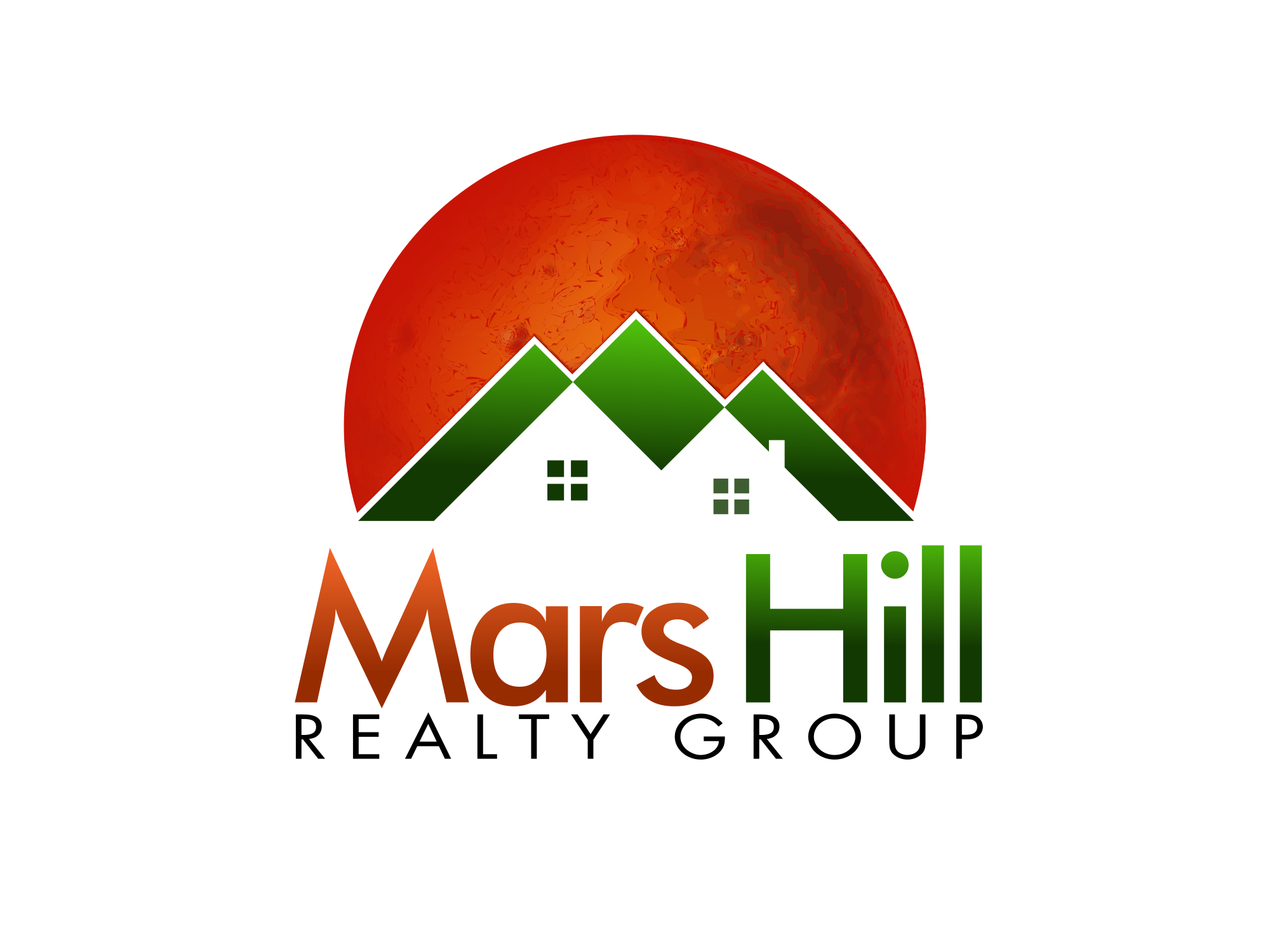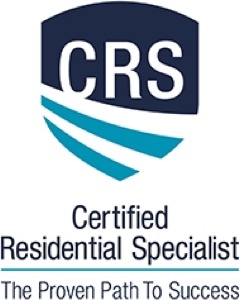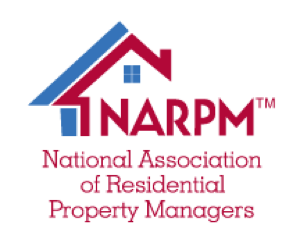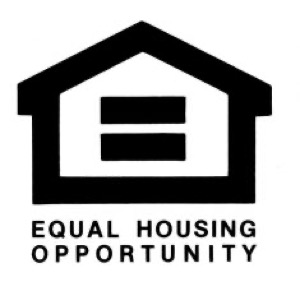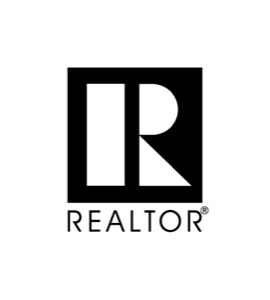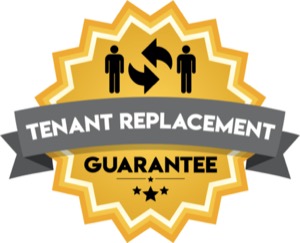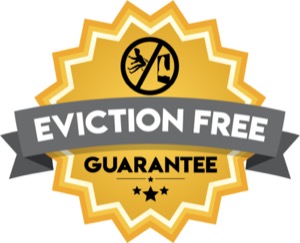Marketing/Leasing Procedures
Leasing Fees
There are no start-up fees, we get paid out of the rent collected to make accounting and cash flow more convenient for you.
- Lease Only Service – We do not do lease only services.
- Leasing and Management of the home – 100% of one month’s rent leasing fee (80% in TX). The leasing fee is defined as any time we put a new resident in the home. “Management Fees” can be found under the “Property Management” section. This is paid regardless of who finds the tenant (owner or management company).
- Renewal Fee – 30% of one month’s rent. The renewal fee is defined as any time we have to renew a contract with an existing renter. If we are extending a lease beyond the original terms, regardless of the length, a renewal fee is charged.
Preparing The Home For Lease
Professional Photography, Videography and Copywriting
When you hire Mars Hill Property Management, you can count on marketing that stands out from the rest. Any agent with a pulse can list your home on the Internet, but few can maximize your home’s marketing effectiveness like we can.
Most marketing by traditional real estate companies feature amateur photography that is poorly exposed (bad lighting) and does not capture the true essence of a home. It may show how many rooms there are, but it doesn’t convey the feeling that those rooms can give you. The descriptions are equally bland, usually just a factual, bullet point list of features that would put an engineer to sleep.
The philosophy for our marketing is to invest in photography, videography and copywriting that is emotionally engaging for the renter. People buy and rent on emotion and not just facts.
We accomplish this by photography that makes your rooms look bright and evenly lit, without over-exposing the windows. Our professional photographers use wide-angle photography to accentuate the best aspects of the space, so you will actually see the entire bathroom and not just a picture of the shower! Here are some comparison photos between two homes that are the same floor plan:
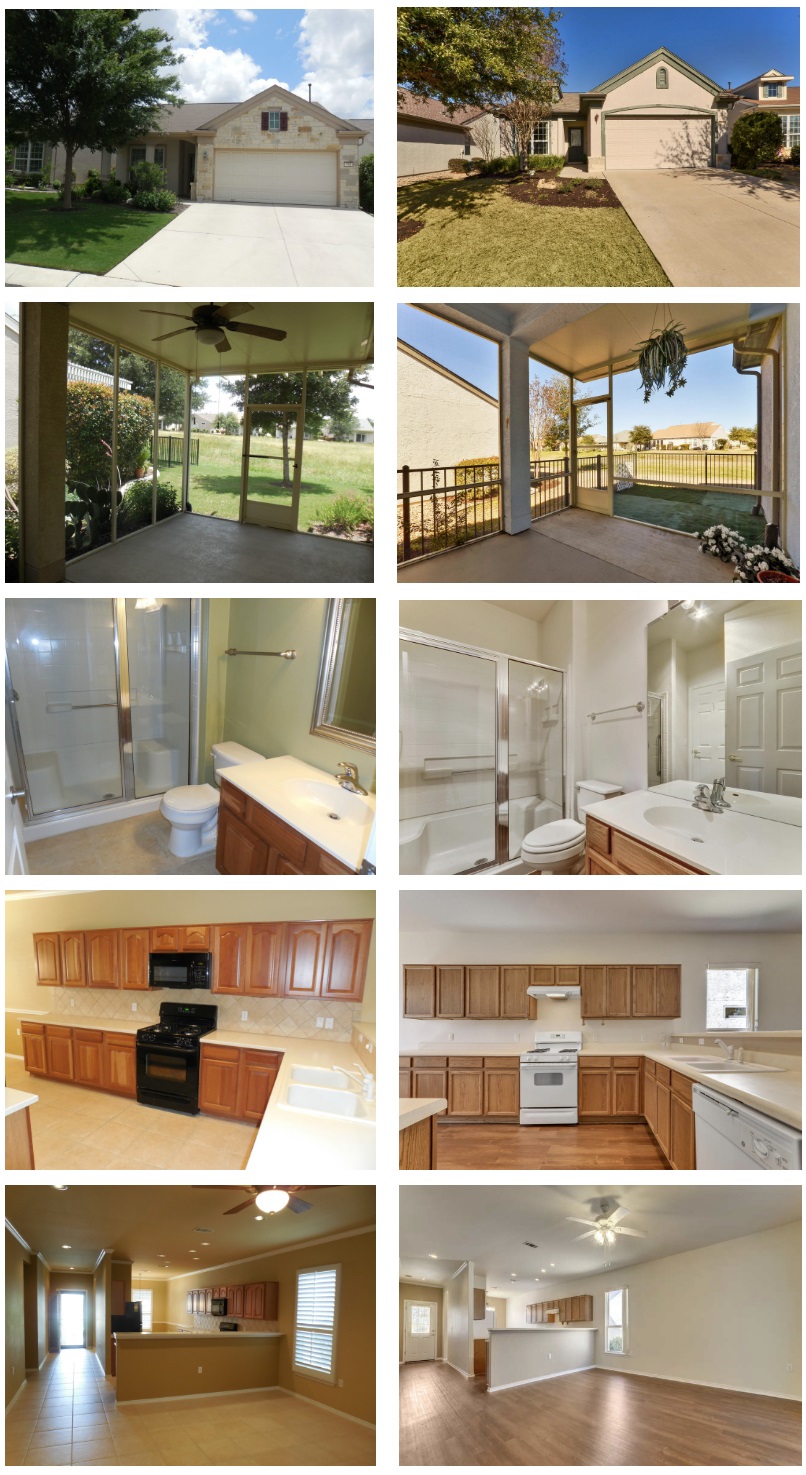
NOTE: If your home is not stage-ready, we use amateur photos until your home is cleaned, vacant and ready for professional photos.
We also use copywriting that takes the traditional list of features and translates those to lifestyle benefits. It’s the difference between listing out the features of a yard, which most real estate companies do:
Private, fenced backyard with a beautiful lawn and wood deck.
versus the lifestyle benefits of the yard:
Relax in the privacy of your own backyard or engage in a friendly game of football while the intoxicating aroma of hamburger patties are sizzling on the grill.
Here are the real world descriptions of two exact floor plans that were listed by a local real estate company for the home pictured above:
Traditional Marketing
“Great home with nice extras, including plantation shutters and hardwood flooring, in Sun City-AGE REQUIREMENT in this community, pets okay with approval, under 35 lbs, great amenities and lawn care included in rent, ready for Immediate Move In!”
“Very large master with huge Master Closet and Master Bath with Walk in Shower. Pet Fence and “Doggie door” available for trained pets. Wood Laminate floors throughout.”
Combining this marketing copy with the traditional photography above, the two floor plans were able to rent for an average of $1425/mo in 11 days.
Next is the description that our company used for the same floor plan in that neighborhood.
Mars Hill Marketing
“Wonderful open and airy homes in Sun City have much to offer. This three bedroom two bath home backs up to a luscious greenbelt. The screened in back porch is a great place to relax and enjoy a cup of Joe. If relaxing isn’t your thing, don’t worry, just hop in your golf cart and drive to numerous golf courses, clubhouses, biking and jogging trails or swimming pools.”
This particular marketing copy with the Mars Hill photography above resulted in a rental price of $1600/mo with just 1 day on the market. Effective photography and marketing copy can save you money!
Staging A Furnished Home
If your home is occupied by your family while we are marketing it, we highly recommend that you stage it. If you stage your home, you are more likely to get a viewing, increase the perceived value, spend less time on the market, and help the future resident visualize living there, while overlooking the flaws.
Here are some resources to help you stage your home:
- http://www.houzz.com/ideabooks/2661221/list/sell-your-home-fast-21-staging-tips
- http://www.hgtv.com/design/decorating/design-101/30-cant-miss-home-staging-tips
- http://parade.com/275765/leahingram/11-frugal-ideas-for-staging-a-home-for-sale
- Also see “HOME STAGING TIPS” Document in Landlord Handbook Forms
Consider these findings from the National Association of Realtors:
- Among REALTORS® who typically represent the buyer, 49 percent report most buyers are affected by home staging and 47 percent report some buyers are affected by home staging.
- For buyers it is easier to visualize the property as a future home (81 percent), buyers are more willing to walk through a home they viewed online (46 percent), will positively impact the value of the home if it is decorated to the buyer tastes (45 percent), and buyers are more willing to overlook other property faults (28 percent).
- Among sellers’ agents 34% stage all homes, 13% stage difficult homes to sell, and four percent stage only high price bracket homes. Forty-four percent suggest the seller de-clutter and fix property faults only and do not stage the home.
- The median dollar value to stage a home is $675 for each home.
- The most important rooms to be staged for buyers match identically to the rooms that are most common to be staged among sellers—in order: living room, kitchen, master bedroom, dining room, bathroom, children’s bedroom, and guest bedroom.
- 32% of buyers’ agents believe staged homes increase the dollar value buyers are willing to offer by 1% – 5%. 19% say there is no impact on the dollar value, and 16% believe it increases the dollar value buyers are willing to offer by 5% – 10%
- 37% of sellers’ agents believe staged homes increase the dollar value buyers are willing to offer by 1% – 5%. 22% believe it increases the dollar value buyers are willing to offer by 6% – 10%. 10% say home staging has no impact on dollar value, and 8% say home staging homes increase the dollar value buyers are willing to offer by 11% – 15%.
- Staged homes spent 72% less time on the market.
Standard Make-Ready Versus General Contracting
We will work with you to prepare the home for the market by making recommendations during our initial walk-through. If there are items that need to be completed, we can refer to an appropriate contractor suitable for the job. Initial make-ready projects should be handled directly by the owner if they are still living in the home and/or there is no tenant occupying it. On subsequent make-ready projects, or if the owner is not present, we can help you by recommending contractors and getting an initial bid based on a detailed scope of work. Any subsequent negotiations regarding pricing, scope of work changes, and payments should be handled directly between the owner and the contractor. We can help the absentee owner verify that the work performed was completed. It is important to note that we are a property management company and not a general contractor. If there are major renovations needed, these are outside the scope of our services.
We define major renovations as projects that involve managing three or more vendors or costing in excess of three months of rent for the property. In ideal circumstances, the owner who is leaving their home and converting it into a rental will be available to manage major renovations. If the owner is not available, we can help you select a general contractor to manage the project on your behalf. If we are placed in the position of managing a major renovation, we will include a project management fee of 10% of the project cost.
Our goal is to help our owners prepare their home for the market when it comes to cleaning and minor repairs. Any make ready costs above the repair limit will be presented to the owner for approval. There are three circumstances in which we would make repairs without owner approval:
- Any make ready costs that are covered by the tenant’s security deposit
- Any make ready costs below the owner’s repair limit set forth in their contract (usually $500)
- Any required health and safety items per local property codes
We utilize a Handyman checklist to ensure the standard of care for the exterior and interior of your home is well maintained. This checklist is used for every make-ready to ensure the tenant that is moving in is not experiencing difficulty with the basic functioning of the home and creating a bad initial experience. Costs can vary on this checklist depending on how many items are needed and the age of the home, for a more precise cost, your property manager can help you obtain an estimate for this work. To view the checklist, you can click here: https://docs.google.com/document/d/1b7EtPwHtFnh2KlWjQM3H7E8NGzAHv2-ttaL3uS-huBE/edit?usp=sharing
Standard Of Care For Home (Exterior)
Items included in the exterior make-ready process may include, but are not limited to, yard maintenance (mow, trim bushes and trees), fence repairs, irrigation repairs, painting (if wear and tear is significant), gutter repair, gutter cleaning, installing garage keypad and other items found on the Handyman Make-Ready Checklist.
We will replace your traditional keyed deadbolt on your front door with a smart lock to improve security and reduce annual rekey costs. This estimated cost for materials and labor is $300 – $325 (regular price of $350).
We will also replace all exterior deadbolts with a one-way lock ($25-$35/unit) and replace all keyed door knobs with non-keyed versions (exterior levers $35/per unit, Interior levers $25/per unit). These are material costs and do not include labor.
Standard Of Care For Home (Interior)
Items included in the interior make-ready process may include, but are not limited to, replacing light bulbs, 9V batteries (or additional installation) for smoke/carbon monoxide detectors, general cleaning, carpet cleaning, changing HVAC filters, touch up painting, rekeying the home, replacing rubber supply lines with steel braided ones, replacing worn toilet mechanisms, cleaning fireplaces, flushing water heaters, purchasing drain strainers, replacing broken blinds, pouring bleach down the primary condensate line, servicing the HVAC unit if it has not been serviced for the past 2 years, and other items found in the Handyman Make-Ready Checklist.
Based on industry guidelines and guidance from local judges, we recommend the following schedule to properly maintain and update the home and keep it in very good condition. Any itemizations we do will be based on the following lifespan:
- Repaint the entire home every 3-4 years.
- Replace carpet every 5-6 years.
- Replace smoke detectors every 10 years.
Where We Market and Marketing Strategy
In addition to real estate signage, we leverage the Internet to market our listings. Here are some of the websites that your home will be listed on (These are subject to change based on changes to subscription services or partnerships with local MLS boards).
- Local real estate database (Multiple Listing Service)
- Company website
- Company Facebook page
- Company Instagram
- Company YouTube
- Company Google
- Other real estate websites syndicated by the MLS (note: syndication partnerships with the MLS are subject to change)
- Realtor
- AustinHomeSearch (TX Only)
- Trovit
- Homes
- Zumper
- Homesnap
- Abor
- HAR
We have been very successful in renting out hundreds of homes using these online resources. If you want us to create a custom listing or submission on a website not listed here, we charge $100 per listing in addition to the cost that we incur from that website.
IMPORTANT TO KNOW ABOUT MARKETING SITES: Where you market (i.e. particular websites) is really not as critical as you may think. It’s a myth that specific websites will be the “magic bullet” that will ensure you get the visibility you need to be successful in renting out your home. This article addresses this with selling a home, but it applies equally to renting a home: See “The Biggest Myth In Selling A Home”): https://www.marshillpropertymanagement.com/service/selling/
We market our property on a variety of third party websites and social media sites, but the majority of our exposure comes from listing it in the MLS. This has always been our focus as it should, as that is where a majority of QUALIFIED renters will find homes that meet their criteria when working with a real estate professional. It’s safe to assume that most renter prospects working with a real estate professional will be pre-qualified to some degree and those are the future tenants we want in our homes. In fact, even when we used to use third-party sites in the past and we tracked the sources of all of our renters, most were coming from the MLS. If not the MLS, they would call us off the sign in the yard. That is why we stopped advertising on third-party sites.
If a home is not renting, the question we should be asking is not whether we have the appropriate amount of market exposure, it should be “Are we priced well, and do we have terms and conditions that could attract the next renter?” Price, Terms and Conditions are the three main drivers that will determine how quickly your home rents.
How The Home Is Shown
As proof that our marketing works, we have been consistently receiving 500+ inquiries every month for our listings. The volume of our rental prospects is so overwhelming that we have created a screening system to “weed out” the prospects who may not have a good rental history, unrealistic move-in timelines, or just aren’t serious. In addition to in-house real estate agents, we may also partner with trusted associates in the real estate community to help show our homes. Lastly, if the home is vacant, we may conduct remote showings.
A remote showing occurs only after we have screened the applicant, collected a copy of their identification card and confirmed that the home is vacant. If the prospect is qualified, we would give them access to the home so they can see it on their own schedule and they would just lock up on their own. Whether the listing is shown in-house, via a real estate partner, or conducted via a self-showing, we will make sure your house gets shown to qualified prospects.
If the home is occupied, we will typically ask the showing agent to give the resident at least 24 hours notice and access the home via the lockbox. It’s generally advised that the resident is not at the home and proper coordination has been conducted so that any pets are removed or kenneled. We also ask the resident to put away or lock up their valuables and medications. Oftentimes a showing agent cannot give such notice and may even show up unannounced! If that occurs, the current resident can simply turn them away and ask them to come back. However, if they are flexible, it’s best to show the home and make sure they receive a business card so we have a record of the visit.
The owner agrees to give Mars Hill permission to use any access procedures that Mars Hill deems necessary to list and manage the home and share these access procedures with any parties that Mars Hill deems relevant. These include combination lockboxes, Sentrilock/Supra, Smartlock and CBS code access.
How Often Market Updates Are Provided
Once your home is active on the market, we will give you updates every 1-2 weeks of any showing activity, agent feedback or rental rate change recommendations. We will continue this process until your home is leased.
Property Status in MLS
The status of the property in MLS is “Active” when it is on the market. Per the rules of the MLS/MRIS, we change the status to “Active Under Contract” when a completed application is received and processed and all monies are paid. We then change status to “Pending” when an application is approved. Lastly, once a lease is signed, we change it to “Closed”.
Resident Selection Process
We have an excellent record of helping our owners choose a qualified renter for their home. As we take resident screening very seriously, we have a very stringent screening process that will eliminate unqualified prospects. We will complete the following reviews (Please see Resident Handbook “Tenant Selection Criteria” for more details on our screening criteria):
- Credit History
- Real Page Artificial Intelligence “AI” Score
- Criminal History
- Eviction History
- Proof of Income
- Debt/Income
- Rental History
- Employment History
- Phone Interview
Once completed, we will recommend either approving or denying the applicant. If approved, we will begin the lease signing process. If denied, we will provide the applicant with a denial letter as well as reason for denial. In order to keep the momentum going with the prospect, we will often decide to approve the resident and give you a 12-24 hour window to comment or ask questions.
The Lease
Executing The Lease
We will be acting as the agent on your behalf to negotiate, prepare, modify, cancel and sign all aspects of the lease. Until all parties sign a lease, and have received an executed copy, the agreement is not legally binding. In Texas, we use the standard Texas Association of Realtor (TAR) Residential Lease Agreement. We use the standard Northern Virginia Association VRTLA Lease in Virginia and GCAAR Lease in Washington, DC which is provided by our Local Association/Board (with a few company specific changes). These leases are kept up-to-date by the Local Association and State Association legal counsel, with new requirements or protections offered under the law. We do not change these leases and if you would like to review them before we begin marketing your property, please let us know and we will be happy to provide you a copy.
Other Lease Clauses And Addendums
We include additional lease clauses specific to our managed properties. These terms/clauses/addenda are included to assist us in managing your property to our company standard. The inclusion/addition of these help us maintain the excellent track record of low late payments, evictions, maintenance costs and several other key performance indicators.
Pet Addendum
Unless you have indicated otherwise, we will accept up to two (2) pets that are no more than 50 pounds each. Anything other than this will need to be approved by the owner. There will be a $250 non-refundable pet fee and $30/mo pet rent for the first pet. Depending on the number of additional pets or type of pets, we may require an additional $30/mo pet rent or $100 payment added to the security deposit for each additional pet. We will require residents to clean any carpets using an odor treatment and require the property to be deflead if necessary.
There are certain “aggressive breeds” that are prohibited unless the owner and/or the owner’s insurance approves. The resident would also need to obtain $1,000,000.00 liability coverage for the pet showing “Mars Hill Realty Group, INC, and (current owner of property)” as “Additional Insured”. The dogs that have been identified either fully or partially of the following breeds are:
- Akitas
- Alaskan Malamutes
- Cane CorsosastiffDobermans
- Chows
- Dobermans
- German Shepherd
- Great Danes
- Mastiffs
- Siberian Huskies
- Wolf Hybrids
- Any others that display a dominant or aggressive behavior.
The following breeds are prohibited without exception:
- Pit Bull Terrier
- American Staffordshire Terrier
- Rottweiler
*In the 16 year period from 2005 – 2020, canines killed 568 Americans and Pit bulls and Rottweilers contributed to 76% of these deaths in nearly all age groups. 17% resulted in meaningful criminal charges in 2020. Reference: https://www.dogsbite.org/dog-bite-statistics-fatalities-2020.php
Service/Emotional Support Animals (S/ESAs)
Unfortunately, even if you do not allow pets, the law does not allow us to deny applicants who have S/ESAs. Reasonable accommodations must be made for finding other insurance coverage, if required, for the animal breed. Also, we are not able to charge any additional fees/deposits for S/ESAs. However, we will require them to provide us information so that we can verify the legitimacy of their S/ESAs. We may deny a reasonable request for accommodation for limited reasons, such as financial or administrative burden, or if an alternative accommodation can be made. Pet allergies is not a reason supported by the law. It’s important to consult an attorney before a denial is made since civil penalties for refusal to make reasonable accommodations and violations of the federal Fair Housing Act can be very costly.
Early Termination of the Lease
Occasionally a resident will want to terminate the lease early. Our company policy is to inform them that they have agreed to pay an Early Termination Fee (ETF) of one month’s rent and a Re-let Fee of one month’s rent. The Re-let fee is an administration fee that Mars Hill keeps to offset our additional expenses. The ETF is to help you recover your costs of potential vacancies and make-ready expenses that are not attributed to the security deposit. Mars Hill will waive our Leasing Fee to find a qualified replacement tenant.
Tenant agrees to provide a new lease termination date that is at least 60 days from when notice is given and agree to pay an early termination fee equal to one month’s rent and a cost of relet fee equal to one month’s rent. Failure to pay this prior to move-out will expose tenants to additional costs and liability such as collection costs, court costs, and attorney fees. We cannot collect “double rent” from both an outgoing resident and an incoming resident so if we do lease it out earlier than the new lease end date and the existing tenant is vacated, we must pro-rate the amount collected from the outgoing tenant.
Experience has shown that providing no way out of the lease will create situations in which a tenant will vacate early, regardless of the consequences, because they are counting on the legal responsibility of the property manager to re-lease the property and minimize their damages. As a result, the landlord is left with paying a leasing fee and accelerated make-ready costs. However under this policy, a 2 month penalty that is written in the lease, will provide us the ability to maintain enough incentive to comply with an original lease term. Even if a tenant does not comply, we will have the ability to collect on the 2 months through the security deposit and other means. This is one of those policies where you do not want to take a hard stance and by providing a process that can be clearly communicated from the onset of the lease, you stand a better chance at minimizing loss in an early lease termination situation.
Termination of the Lease
If either you or the residents do not want to renew the lease, either party must give written notice of this intent within the time frame noted in the lease. It is normally 60 days prior to the lease termination but refer to your lease for the required days’ notice. Please check your specific lease for the term agreement and conversion to month to month.
Month-To-Month Leases
We do not recommend month-to-month leases, unless your current lease terminates during the winter months and you want to wait for a better time of year to re-rent it. It is usually better for the landlord to have a specific lease term for planning purposes. We don’t recommend month-to-month leases because of the risk of vacancy at any time. If your current lease terminates during the late winter months, it definitely makes sense to offer a short term lease for a few months in order to have the property become available in the spring/summer season. We can specify that the month-to-month term will not extend beyond a certain date, and upon that date we can sign a 12-month renewal with the tenant or market the property. All of this is market dependent.
Lease Term
We always start at a 12 month term to reduce the risk of being locked in to a tenant that does not meet expectations. Renewals after the first year could range from 12 – 36 months with built-in rent escalation clauses. On month-to-month and shorter term leases, we usually recommend a 10% premium on rents to help cover the renewal fees.
Lease Rate
We will provide you with our market analysis based on comparables that have been rented in the past 6-12 months in your neighborhood and/or zip code to determine the lease rate.
